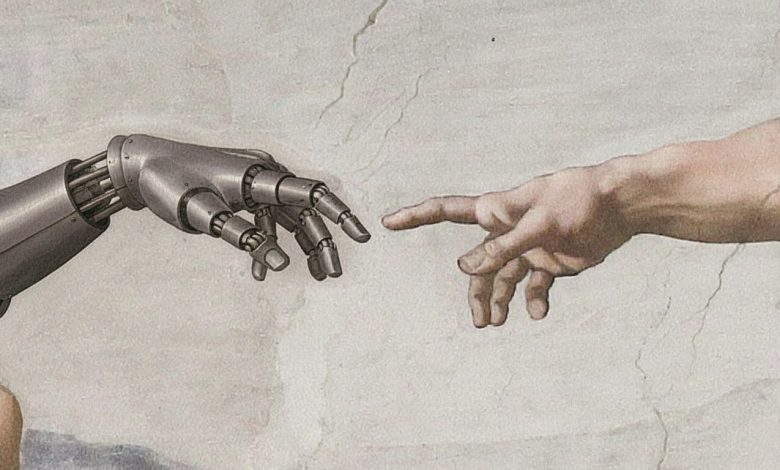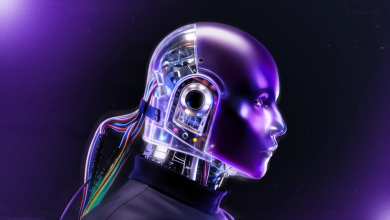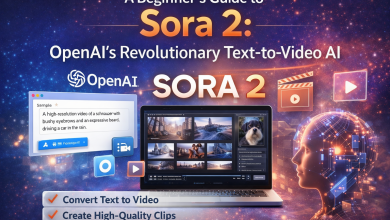
There is a familiar rhythm to how society reacts whenever new technology arrives. First comes the excitement, then the panic. When machines powered the Industrial Revolution, workers feared their jobs would disappear. When the internet spread into homes and offices, many believed it would eliminate entire industries. Now, with artificial intelligence, we are hearing the same story all over again: that it will take everyone’s job.
As a lifelong technologist, I do not believe that narrative. AI will change the way we work, but not by replacing people outright. It will amplify human ability, just as every important tool before it has done. The hammer did not replace the carpenter. The calculator did not replace the mathematician. AI is no different.
When I want to make this clear, I often ask a simple question: “How old is Google?” Most people answer around 20 years, sometimes 25. Then I point out that yes, it is that old, and after all this time people still do not know how to use it effectively. That is the reality of tools. They are powerful, but power means little without skill.
I sometimes put it another way. If I gave you all the best tools in the world, could you build me a house? Of course not. Tools are not magic. They require expertise, practice, and vision to transform raw capability into something real. Skeptics argue that AI is different—that it automates cognitive work, not just manual labor. But AI doesn’t replicate human understanding, context, or consequence. It generates patterns based on data; it doesn’t possess wisdom. In the right hands, it can accelerate progress. In the wrong hands, it is just potential sitting idle.
Jobs Do Not Vanish, They Shift
History shows us that jobs do not simply vanish when new tools arrive. They shift. During the Industrial Revolution, manual farm labor declined, but factory jobs exploded. Later, many factory jobs gave way to service and knowledge-based roles that nobody had even imagined before.
The same pattern emerged with computers. Typewriter repair shops disappeared, but entire new industries were born. In 1990, jobs like “Social Media Manager,” “Cloud Architect,” or “Data Scientist” didn’t exist; today, they employ millions. One comprehensive study by McKinsey found that for every one job the internet displaced, it created 2.6 new ones. Technology closed one chapter and opened another.
AI will do the same. Some roles will shrink, others will transform, and entirely new categories of work will emerge. What looks like job loss in the moment almost always turns into job shift over time.
The Myth of AI Replacing Coders
One of the most common claims I hear today is that AI will eliminate programmers. As someone who codes regularly, I can tell you this is overblown. I use AI tools to help me with coding all the time. They can speed up repetitive tasks and even generate useful snippets. But they also make mistakes. A lot of them. For instance, I recently saw an AI suggest a code change to optimize a database query. The code worked, but it failed to account for a rare edge case, creating a subtle data corruption bug that would have been a nightmare to track down later.
That doesn’t mean the tools are useless. They save me time and spark ideas. But they cannot replace the human element of problem-solving, architecture, design, and debugging. Programming is not just writing lines of code. It is understanding systems, anticipating problems, and creating solutions that fit the bigger picture.
In reality, AI will likely increase the demand for coders who know how to use these tools well. Just as spreadsheets created more demand for analysts who could interpret them, AI-assisted coding will create more demand for developers who can combine machine output with human oversight.
The Skills That Matter Most
If AI is a tool, then the competitive edge does not lie in whether you have access to it. Everyone does. The edge lies in how well you can use it.
The most valuable skills in the age of AI are not technical for the sake of being technical. They are:
- Critical thinking. Can you tell if the AI output is correct? Can you see bias or errors? Can you apply context that a machine cannot?
- Prompting skill. The ability to ask precise, clear, and well-framed questions of an AI system is becoming as essential as knowing how to Google effectively.
- Creativity and empathy. Machines can generate, but they cannot originate true human creativity or understand human nuance.
- Adaptability. The tools will keep evolving. The people who learn, experiment, and adapt will thrive.
Why Adoption Often Fails
Many organizations are rushing to “implement AI” without preparing their people. They buy the software but never teach employees how to use it well. They underestimate the cultural shift required.
AI adoption often fails not because the technology is weak, but because the workforce is not ready. In the early days of spreadsheets, the same thing happened. Companies had the tools, but not the training. Once they invested in skills, productivity took off. The same will happen with AI.
Real-World Collaboration
AI-human collaboration is already visible. In medicine, AI can analyze scans faster than humans, but doctors make the diagnosis and treatment decisions. In law, AI can review thousands of pages of documents in seconds, but lawyers use those insights to shape arguments. In creative work, designers use AI for brainstorming, but they bring the taste and vision that move audiences.
Even small businesses are finding ways to benefit. At my firm, I see small and mid-sized companies using AI for marketing, customer support, and operations. It is not replacing staff. It is making lean teams more effective.
Culture, Not Just Technology
The real challenge for AI is not technical, it is cultural. Employees need to trust that learning AI will not make them disposable. Leaders must set guidelines for how and when it should be used. Workflows need to adapt just as they did when email and video conferencing reshaped communication.
The companies that thrive will be those that encourage experimentation, provide training, and integrate AI without stripping away human responsibility.
A Tool, Not a Threat
When calculators became mainstream, math education did not end. When Google arrived, we did not stop needing experts. Each of these tools raised the baseline of what was possible. AI is simply the next chapter.
The future will not belong to organizations that try to replace humans with machines. It will belong to those that empower humans with machines, giving them leverage to think bigger, work faster, and create more.
Conclusion: The Future of Work is Human-Led
AI is here to stay, but not as a replacement. It is here as a collaborator. The real question is not whether AI will take your job. The real question is whether you will learn to use it.
Just like Google, the power is not in the tool. It is in the person sitting in front of the screen. The future of work will not be man or machine. It will be man and machine. That is not something to fear. That is something to embrace.



